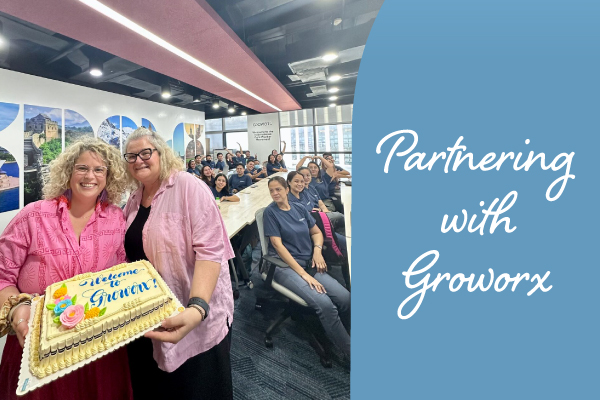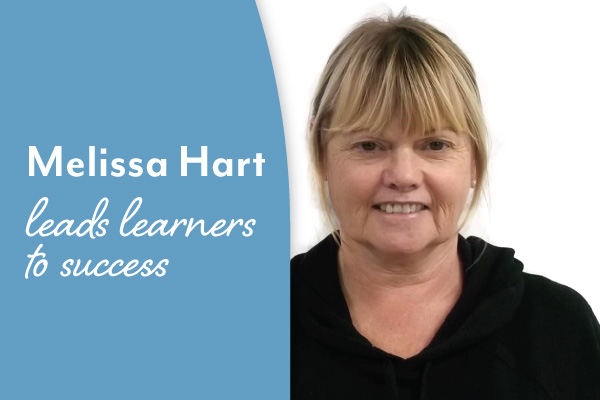A look at aged care through the eyes of our trainers.

Aged care trainers: Sally Forbes, Daniel Hau, Karen Richards and Glen Perry
It’s often said that working in aged care isn’t a job that’s chosen at random, instead, it’s a vocation – people have a strong feeling it’s what they are meant to do. Sometimes it may be caring for a sick or elderly relative or in other cases it stems from a desire to find a job with greater purpose and meaning. But ultimately there’s something more than wanting ‘just a job’ when it comes to working in aged care.
Our aged care trainers are on the frontlines of nurturing the people that aspire to pursue their careers in this demanding and fulfilling industry. We reached out to find out more.
Between them, Susan Pedwell, Sally Forbes and Karen Richards have almost 40 years of industry experience and plenty of stories to tell. While they have all taken different paths to their current roles as trainer and assessor, when we asked them about what it like to work in aged care and the future of the industry, there were some surprising similarities in their answers.
“Many of my students are like myself. They move into the aged and disability sector after being in a family carer role or seeing the industry through a relative’s experience. To be able to do it as a career, with a smile on your face, you need to have empathy.” Says Susan.
Empathy is a theme we hear over and over again when it comes to aged care and is an essential ingredient to working in this industry. Sally elaborates:
“It is a very special person that works with the aged and the disabled… this person is compassionate and caring and wants to enrich the lives of the people they care for. They need to be patient and empathetic and have a good sense of humour!”
Caring for those who once cared for others
The reward for aged care workers who possess such qualities are immense, and it’s another shared topic of discussion amongst our trainers. Having the opportunity to care for someone who once cared for many others is something that resonates with many aged care workers.
They discuss the fulfilling nature of the work, along with the increasing opportunities – and of course, the stories.
“We have an ex-nurse, living in an aged care facility who joins our meetings between me and my student – sitting, nodding and having an input in our conversations. Another used to patrol the hallways, checking her ‘patients’ and checking a bed here and there to make sure it was made properly” says Karen with fondness.
Stories like these add richness and variety to the days of aged care staff, whose jobs are becoming increasingly diverse with changes in industry, government and client expectations.
“The aged and disability industry has changed a lot in the last year or so, mostly due to the Aged Care Funding changes and NDS,” says Susan. “Some of my students are now applying for more independent job roles, either through small agencies or self-advertising formats.”
An evolving sector
There’s also been an evolution in where aged care work is taking place, along with the skills required, discussed by Sally:
“Aged care isn’t just happening in facilities, many older people are wanting to stay in their homes so there’s a greater need for ‘community care workers’ assisting the aged and the disabled to remain in the comfort of their homes. What’s more, facilities have given greater attention to the social wellbeing of their residents. I have noticed a demand for qualified ‘Leisure and Health staff’ to provide activities and programs which empower and stimulate older and disabled people.”
While the industry changes and adapts, the fundamental importance of aged care workers remains intact – and is increasingly relevant.
In fact, according to the Future of Australia’s aged care sector workforce report by the Australian Human Rights Commission, the number of Australians aged 65 and over will increase to 22.9 per cent of the total population by 2055.
As a result, more demand on aged care services is expected – and further good news for care workers is that unlike in other industries, where automation is causing worries over job stability, technology is seen as less of a threat.
Rewards beyond compensation
Caring for anyone, the elderly included, is a human behaviour which enriches the lives of those both receiving and giving. Aged care proves to be more than just a ‘job’ but rather a fundamental and extremely important role which plays an integral part in society as whole.
The passionate trainers at Selmar are acutely aware of the impact this important role plays and make it their mission to train their students on how to provide the highest quality of care delivered with respect and integrity.
On final reflection of what makes her students so passionate about the industry, Karen leaves us simply with this:
“They get a great deal of joy seeing the happy faces of the people they care for.”
Contact us today to find out more aged and disability care courses and our amazing training and support team.




